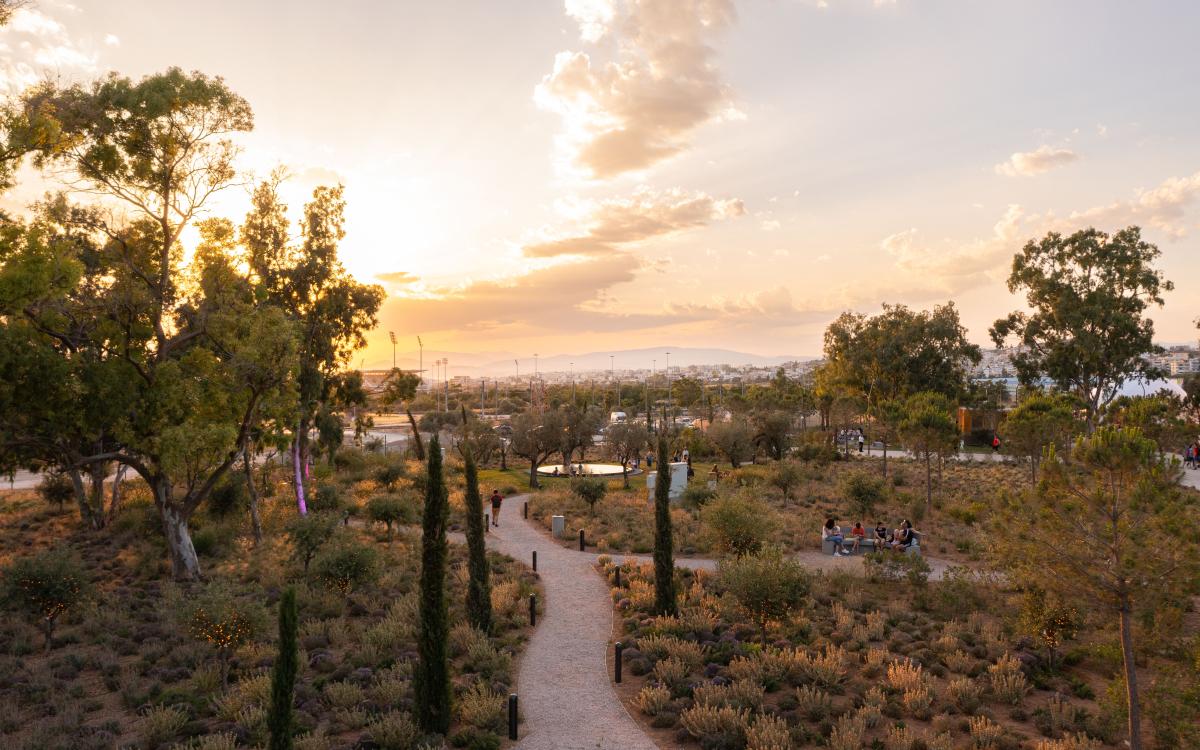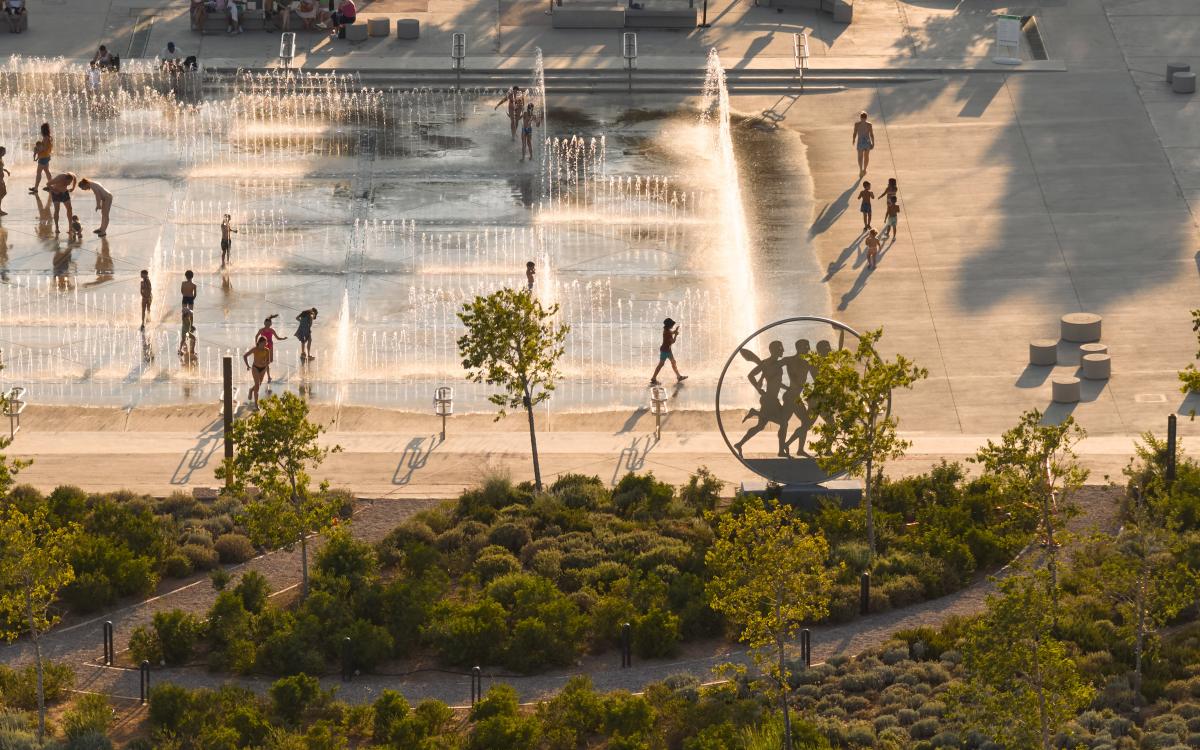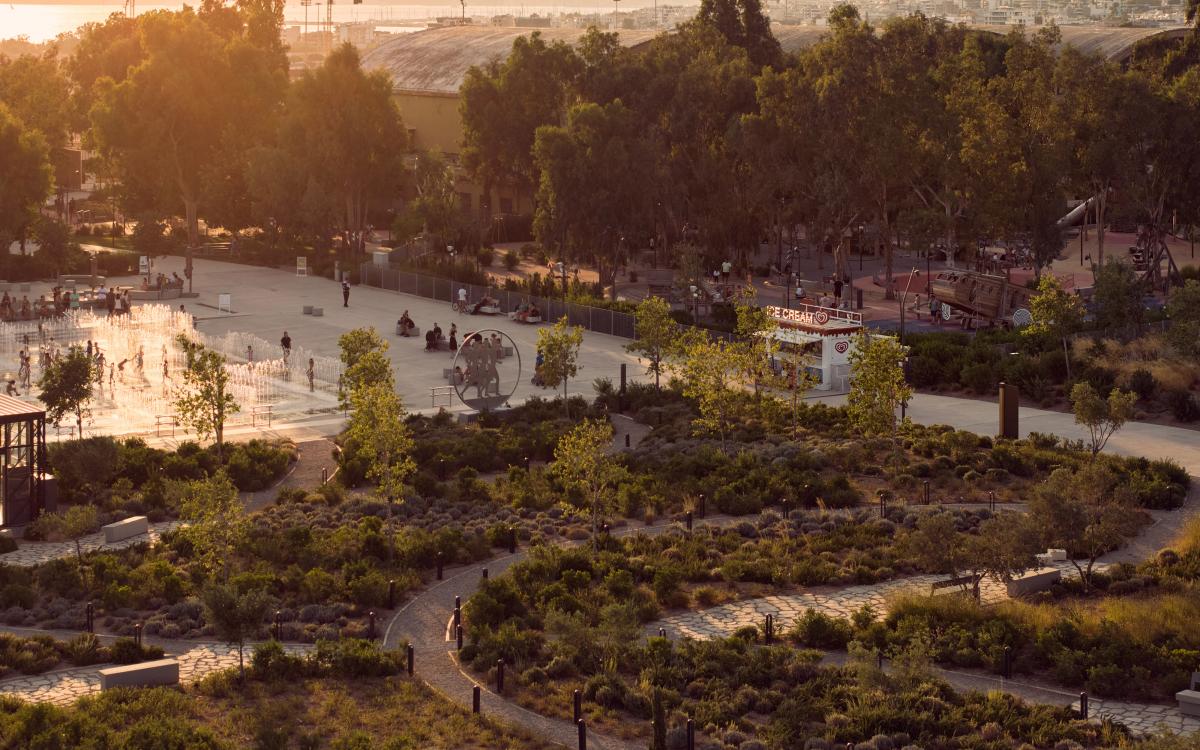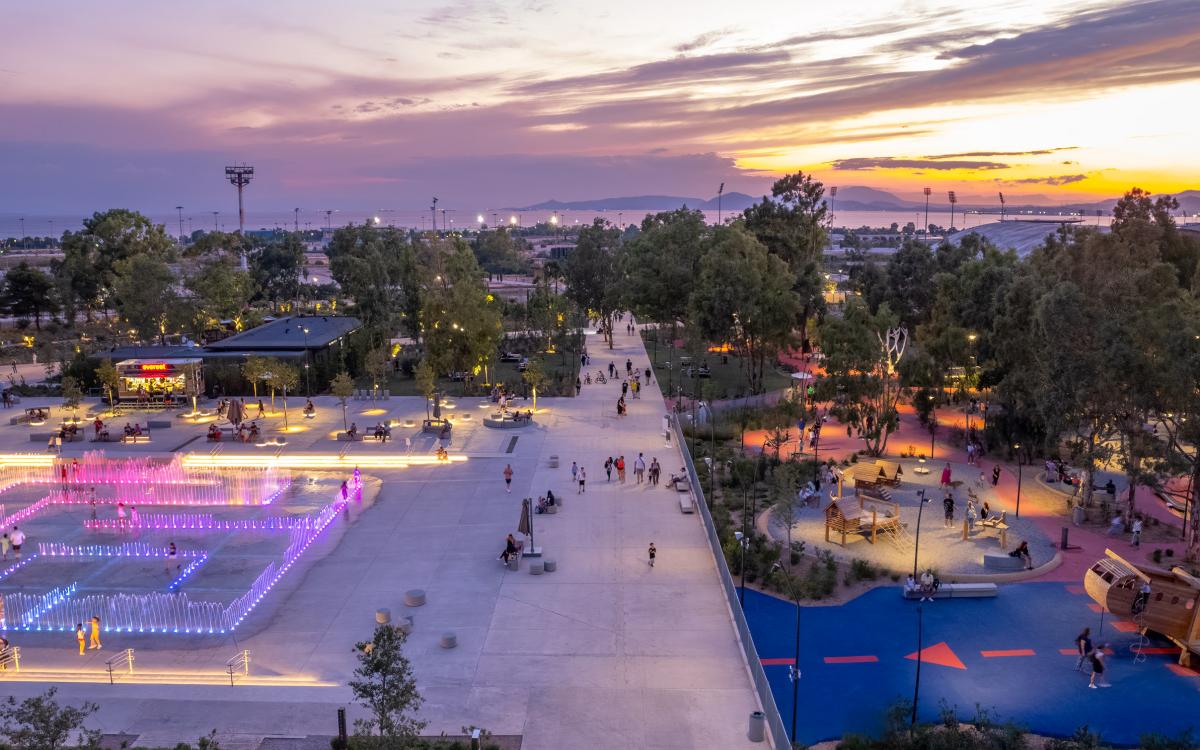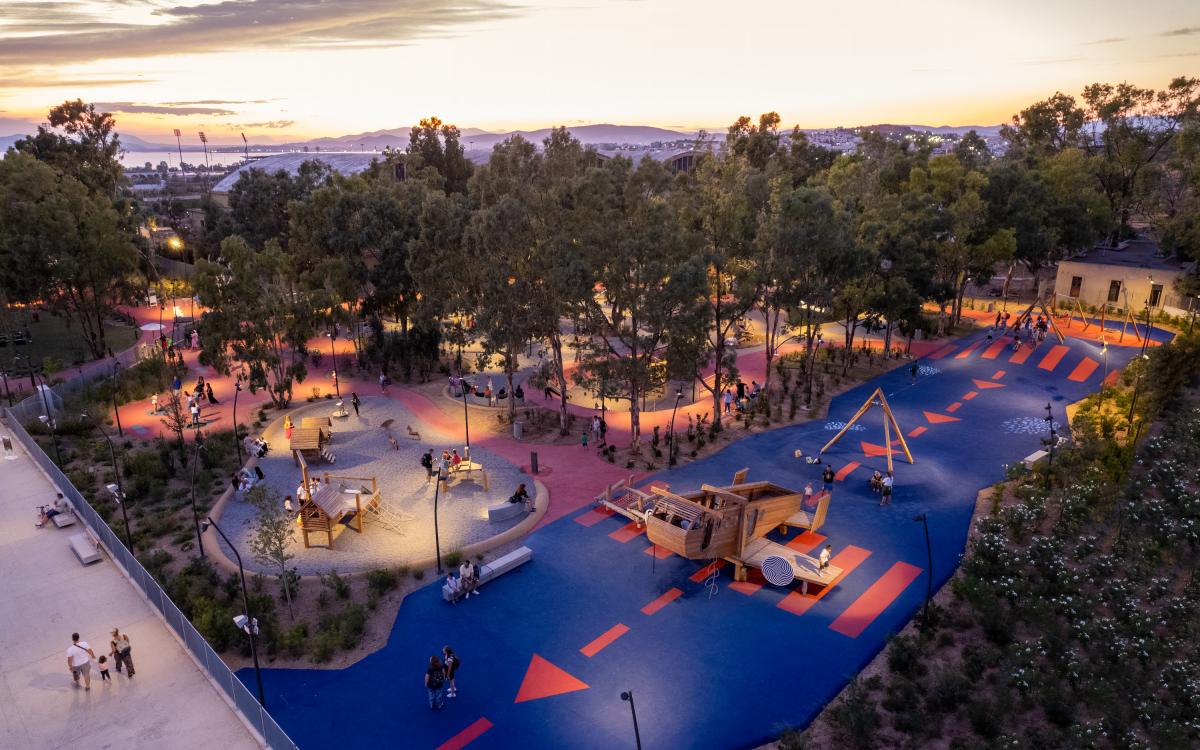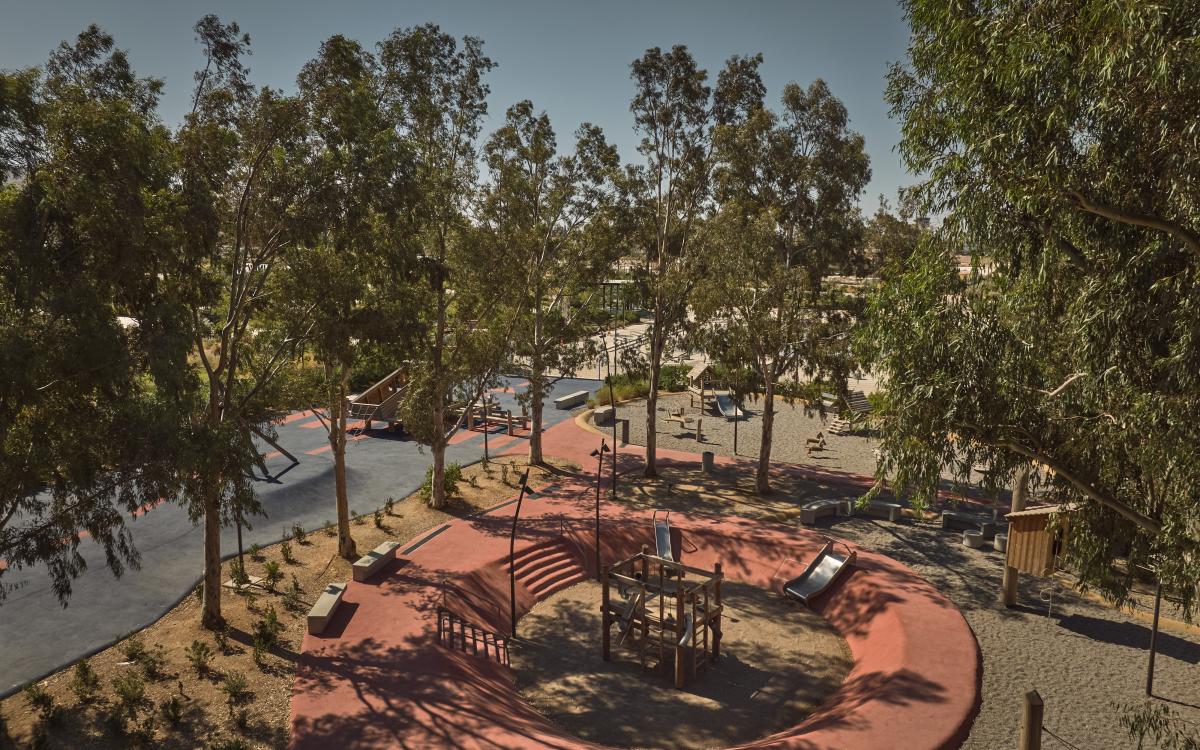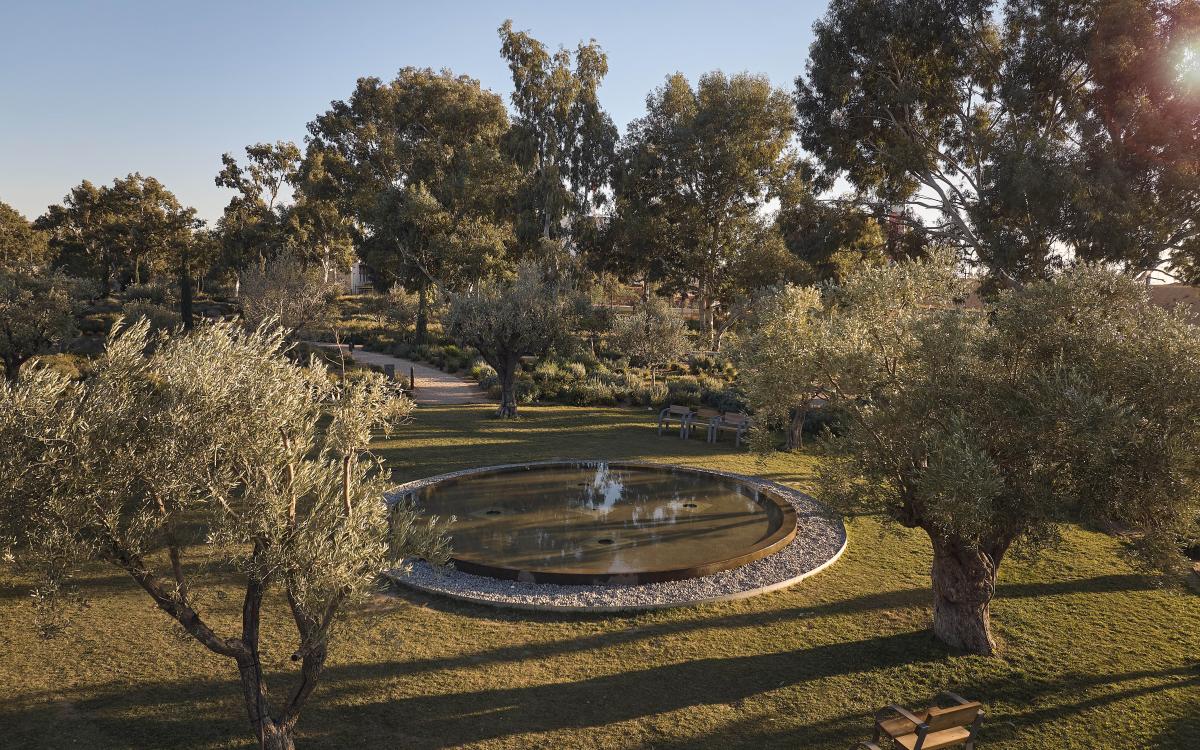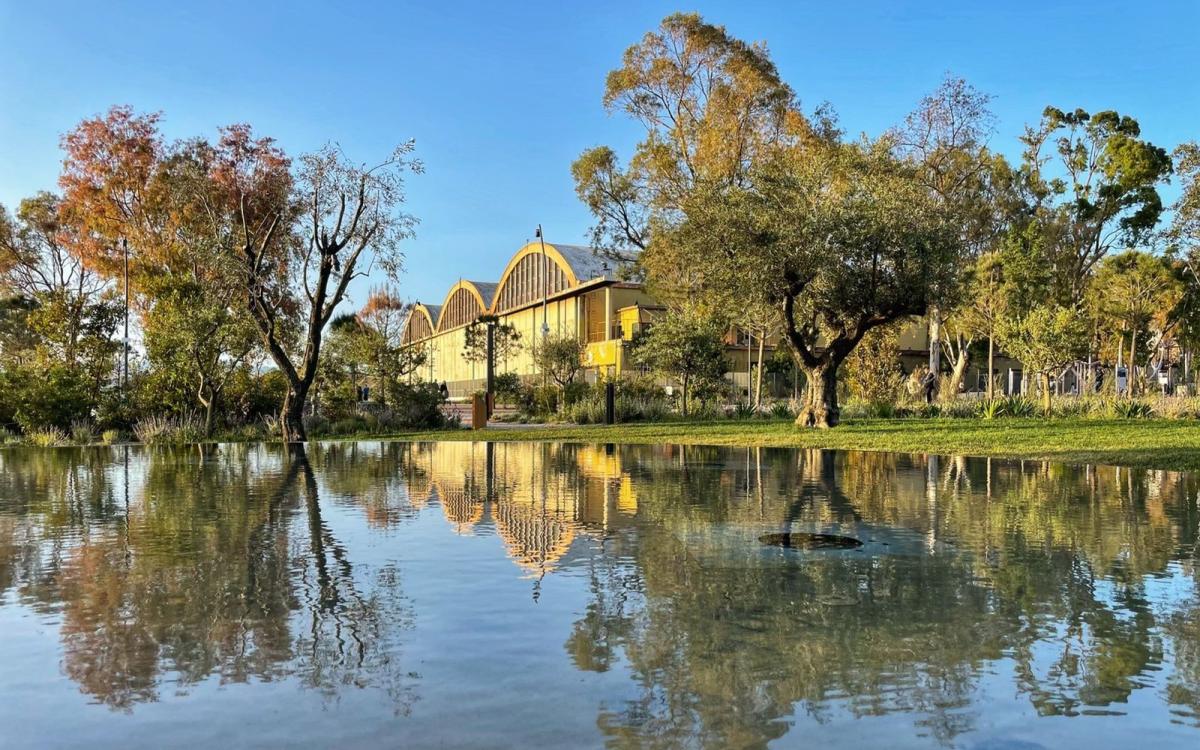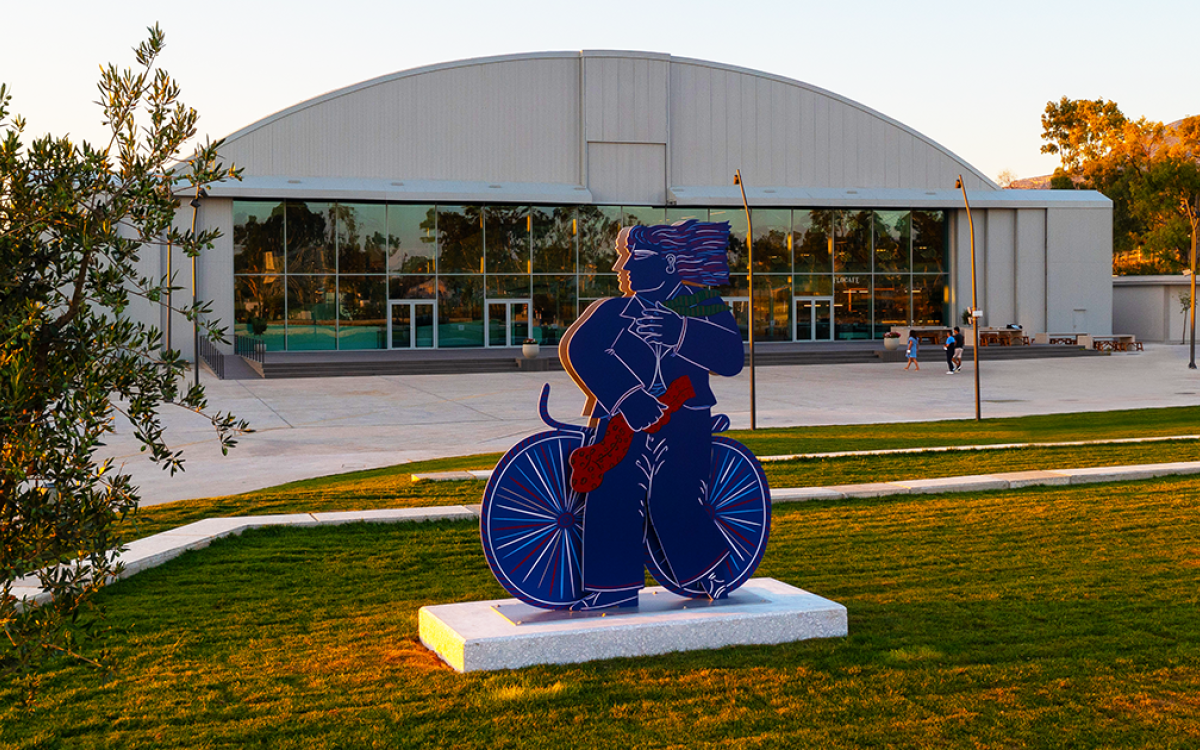Athens
Greece
Located in the Athenian Riviera, 8 km from Athens’ city center, The Ellinikon Program covers a vast 6.2 sq. km (2.4 sq. miles) on the former grounds of the International Airport of Athens, which has been vacant since 2001. As one of Europe's largest urban regeneration projects, the development is intended to be a paradigm of integrated sustainable living for visitors.
The Ellinikon program promotes four main goals:
- Create a regenerative system and foster resiliency: Restore natural resources (soil and vegetation) and protect the surrounding environment.
- Design with nature and culture: Preserve the site’s history and develop cultural walking paths that promote regional identity.
- Enhance human well-being: Help visitors reconnect with nature.
- Strengthen community: Provide opportunities for social interaction through fitness and playground areas.
The Ellinikon is implementing European best practices, involving Greek and international specialists to deliver a sustainable landscape and ecologically resilient district. Key strategies of the plan include global and local climate regulation, circular land use, water conservation, biodiversity and soil enhancement.
The SITES Gold certified Experience Park is the first portion of Ellinikon to be completed and open to the public in 2022. It was important to the project team to kickstart the park’s reputation with the highest sustainability and regenerative design strategies, such as those found in the SITES rating system, which will guide the rest of its design and construction.
The Experience Park promotes the site’s unique history and Greek identity, focusing on sustainability and heritage. Elements of the former airport are preserved whenever possible, to be reinterpreted and revealed in surprising and innovative ways. The park features new softscape areas with approximately 700 trees and 50,000 plants, plazas, a playground, an outdoor gym, an interactive fountain, and supporting facilities. It is inclusive and accessible for all, intending to promote connection and well-being amongst visitors.
The Experience Park was also designed to promote the principles of waste reduction, recycling and reuse to actively reduce carbon emissions from upfront production of materials. The existing concrete surfaces (such as runways) have been reused to create the recycled sculptural garden, pathways and bespoke urban furniture.
The park aims to promote biodiversity and restore the habitat through its landscape design, such as transplanting 80 olive trees from the former airport area to the park. It was developed to reduce water demand for irrigation, conserve and enhance healthy soils, and minimize pesticide and fertilizer use. The park incorporates a contemporary approach for rainwater management. Instead of storming down causing floods, rainwater is collected in "rain gardens.” There, it is slowly filtered by replenishing the aquifer, while giving life to aquatic plants.
“We want to shape a park that will last for hundreds and thousands of years,” said Danai Frantzi-Gounari, Sustainability Senior Manager at LAMDA Development, S.A. “We wish to provide Athens with a new destination that will enhance nature, biodiversity and resiliency. The target is a native and adaptive landscape that will be able to sustain itself for years with very low inputs. That will be suitable for low maintenance from our side and long-term service to the community.”
Project team:
- LAMDA Development / HELLINIKON S.M.S.A. (Owner/Client),
- Doxiadis + (Landscape Architects),
- ECON 21 (Softscape),
- LDK (MEP Engineers),
- HILL International (PMC),
- REDEX (General Contractor)
Photos courtesy of Dimitris Spyrou (Photos 1-3, 6-7, 9) and George Fakaros (Photos 4-5, 8)

